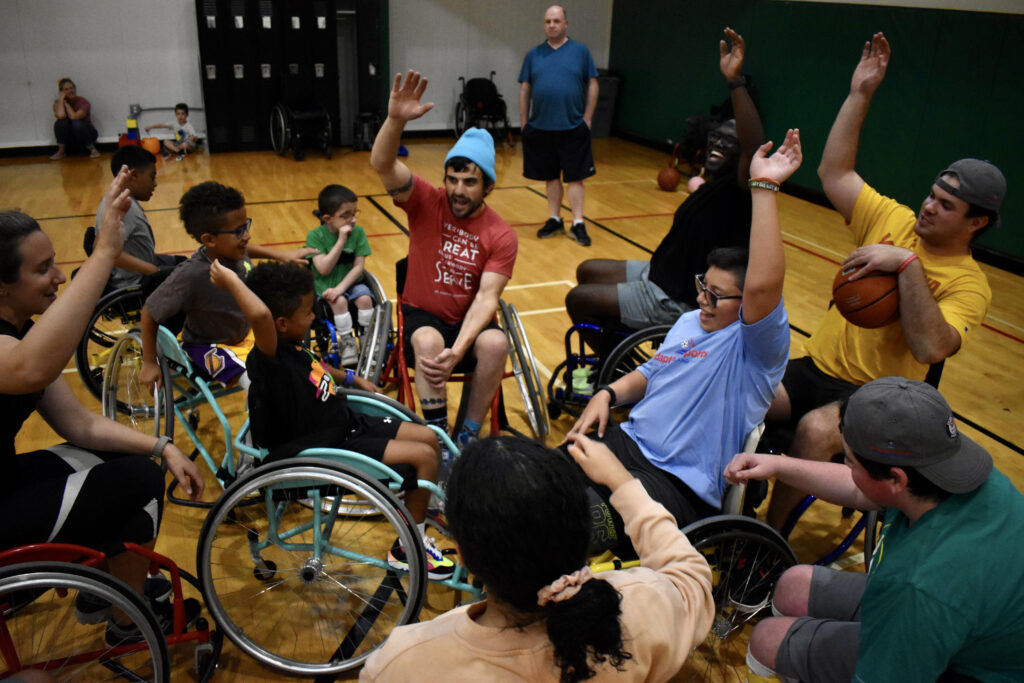
I have been obsessed with basketball my entire life. As a kid, I idolized hoopers like Kevin Garnett and Tim Duncan, giants of human beings who spent their careers above the rim. Growing up, I was one of the tallest kids in my grade, always giving me an advantage over the rest of my friends trying to guard me on the court. This, along with a decent shot and some scrappy defense, allowed me to become a decent player in my glory days. However, I stopped growing too early and never became the freak-of-nature that’s required to make the NBA, or even excel at the college level. The problem with basketball is that very few average-sized humans ever step foot onto a professional, or even college, court. So what if there was a version of basketball that really eliminated the height factor, lack of jumping ability, and speed disadvantages? That is what I’ve found these past few months with wheelchair basketball.
When Adaptive Sports New England partnered with Franciscan Children’s a number of months ago for our wheelchair basketball program, I got excited. Wheelchair basketball was one of the few adaptive sports that I was aware of prior to joining our organization, and I had always wanted to try it out. What I’ve discovered through attending practices and helping coach is beyond anything I could’ve imagined. This sport completely evens the playing field – my height advantage has been completely negated by the wheelchair, my speed is average at best, and I can no longer use quick, athletic moves to get by people. That being said, the flow of play is still fast: plays are still run, screens set, shots blocked, etc. My basketball knowledge still transfers over well, just now must be adapted to the seated position. It is just as fun and thrilling as standing basketball, just without you needing to be the best athlete or tallest person in your family to succeed.
Sure, it’s fun to watch hoopers throw down dunks or block shots with ease – they’re some of the most impressive athletes on earth. But it’s almost equally as impressive in my mind to see someone drain a three-pointer from their chair, or perfectly execute a pick-and-roll with large pieces of equipment around them. I’ve gotten pretty proficient in the sport chair and still struggle to move around in an agile way sometimes. Others recognize the talent on display at the Quincy YMCA on Sundays too, as our sidelines become filled with hoopers and parents watching our end-of-practice scrimmages. As cheers and claps ring out with every made bucket, my love for basketball grows more and more. Give wheelchair hoops a try – you won’t regret it.
– Sam Bernstein, Program Manager



Comments are closed